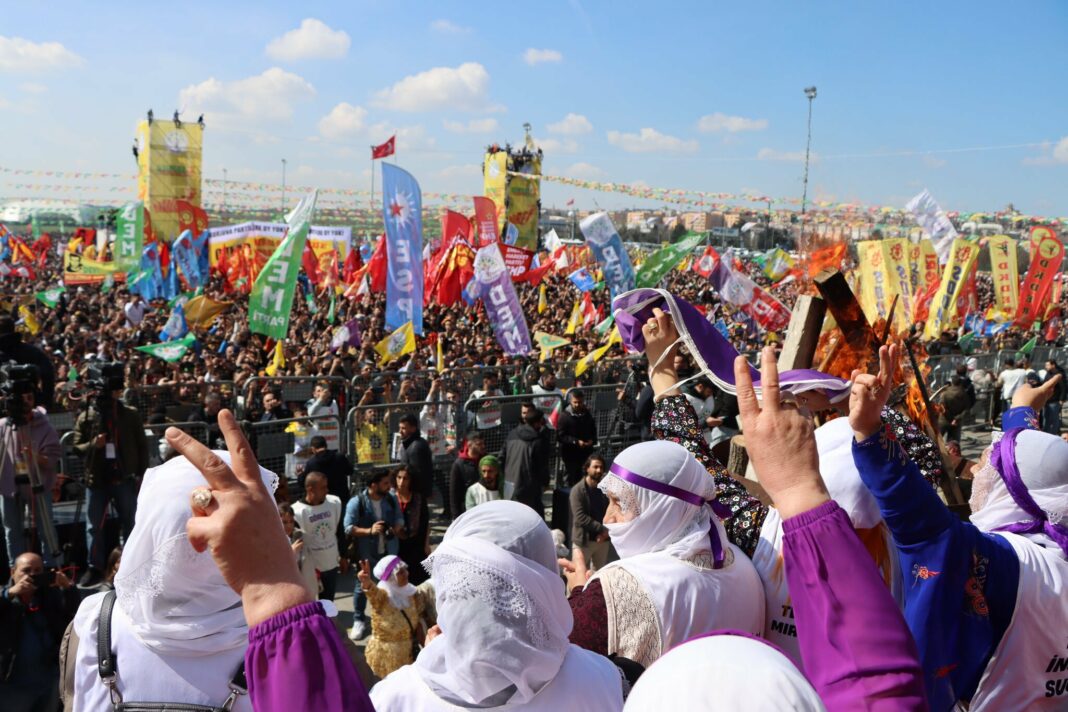Turkish security forces have detained 139 people in 15 provinces across the country for allegedly planning terrorist attacks to be carried out during Nevruz celebrations, the interior minister has announced.
Ali Yerlikaya on Wednesday announced on X that the suspects were detained in simultaneous raids as part of “Bozdoğan-12” operations conducted in 15 provinces, including Adana, Diyarbakır, İstanbul, İzmir and Van.
1️⃣5️⃣ İlde Bölücü Terör Örgütüne (BTÖ) yönelik eş zamanlı olarak düzenlenen “BOZDOĞAN-12” operasyonlarında 1️⃣3️⃣9️⃣ şüpheli yakalandı❗
Aziz Milletimizin Bilmesini İsterim ki;
Ülkemizin huzuru, birlik ve beraberliği için teröristlerin hiçbirine göz açtırmayacağız. Güvenlik… pic.twitter.com/F777uluKwn— Ali Yerlikaya (@AliYerlikaya) March 20, 2024
The minister said the 139 suspects were found to have disseminated propaganda for the “separatist terrorist organization” on social media and were planning attacks on security forces and public vehicles and buildings on the pretext of Nevruz celebrations. He did not mention the name of any terrorist organization but was apparently referring to the outlawed Kurdistan Workers’ Party (PKK), listed as a terrorist organization by Turkey and much of the international community.
Digital materials were seized in the operations, in addition to unlicensed firearms, according to Yerlikaya.
Nevruz is traditionally marked by Kurds in the second half of March as the first day of spring, with colorful celebrations across the country’s predominantly Kurdish southeast. However, Nevruz celebrations, which have a highly symbolic meaning for Kurds, have often been marred by heavy-handed police intervention and become the target of criminal investigations for speeches that are made and banners that are displayed during the festivities.
In some cases, people were even detained over clothing featuring the yellow, red and green colors of the PKK, which has been waging a bloody campaign in Turkey’s southeast since 1984.
Turkey’s counterterrorism laws are often criticized by rights groups and international observers for being overly broad, allowing authorities to interpret social affiliation as terrorist links and speech as terrorist propaganda.
Kurdish politicians and activists commonly face accusations of membership in or spreading propaganda on behalf of the PKK in their speeches and online commentary or attendance at events.
Many Kurds, who make up about a fifth of Turkey’s estimated 85 million population, say they face significant discrimination in the country.
